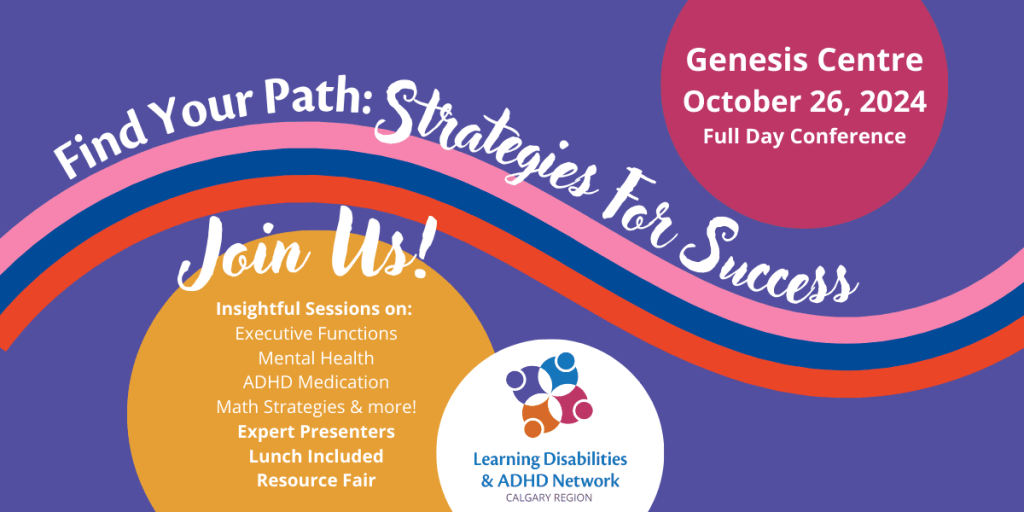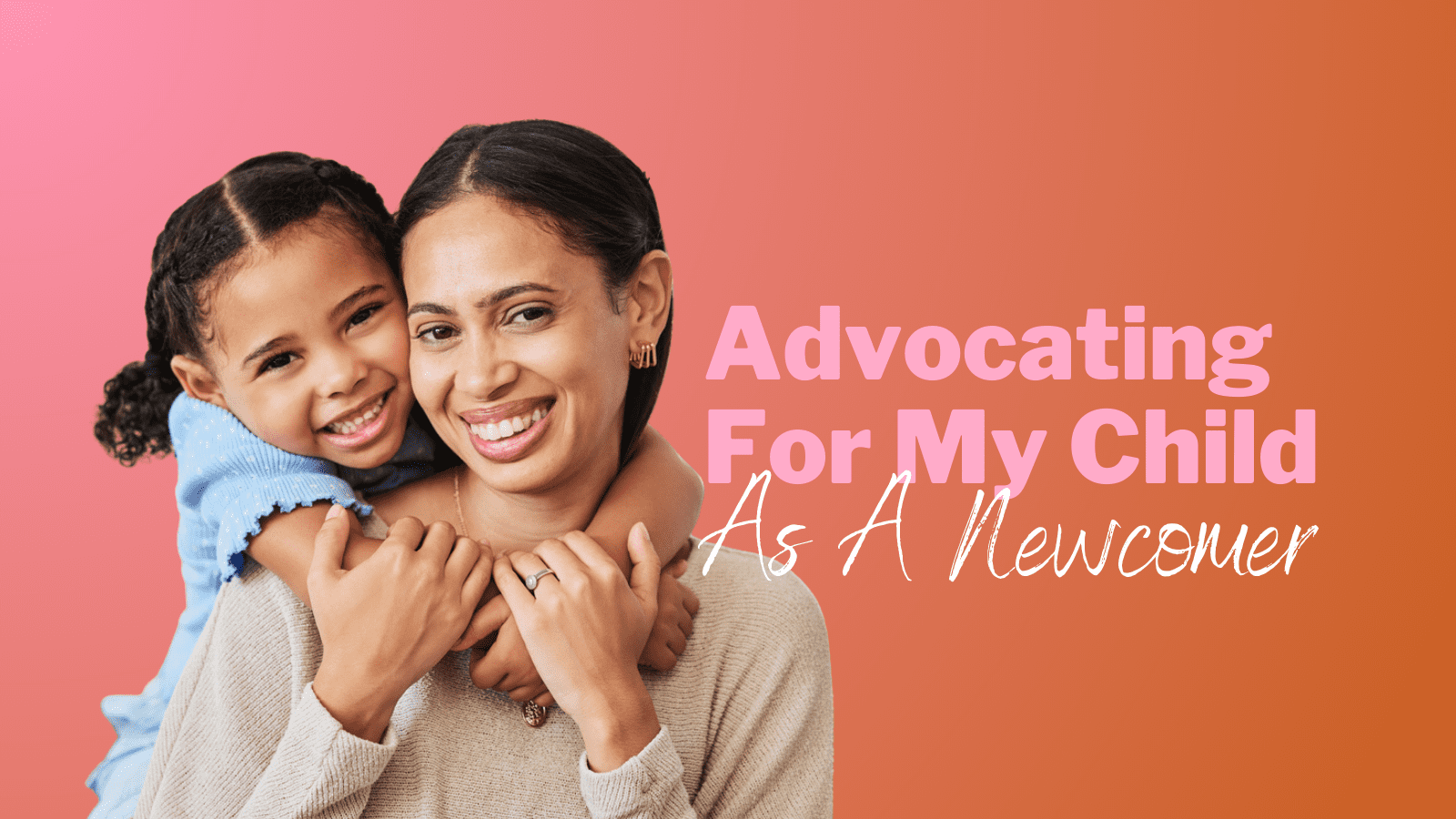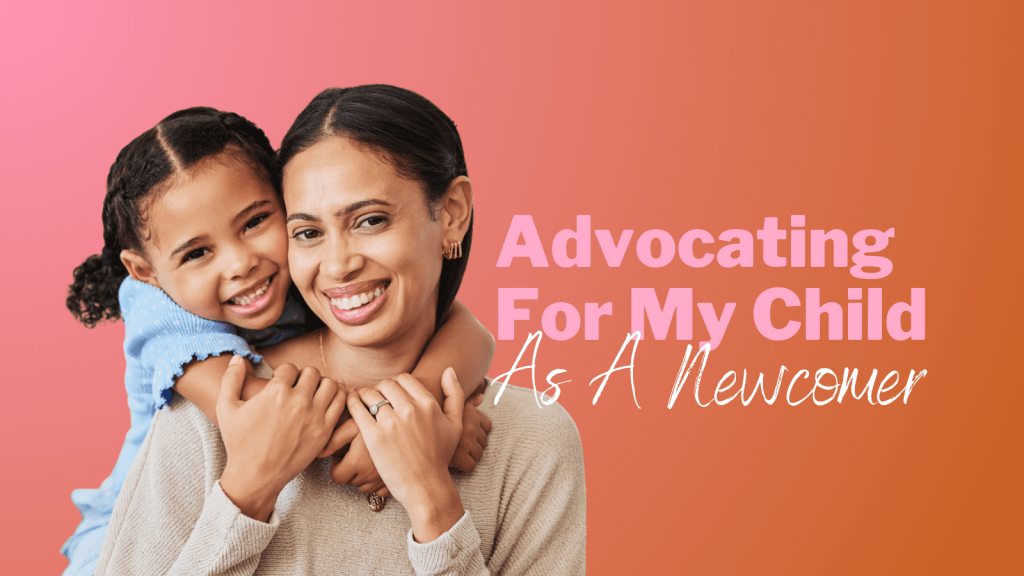Learning Disability
and ADHD Support
When You Need It.

Resources For
Greater Success
We hope that this website supports your journey as you navigate the struggles related to LD and ADHD and build upon your strengths, in order to reach your full potential. Know that you are not alone, and we are here to help you along the way.

Attention Deficit Hyperactivity Disorder (ADHD)
Have a Question? Get in Touch Today!
Latest News
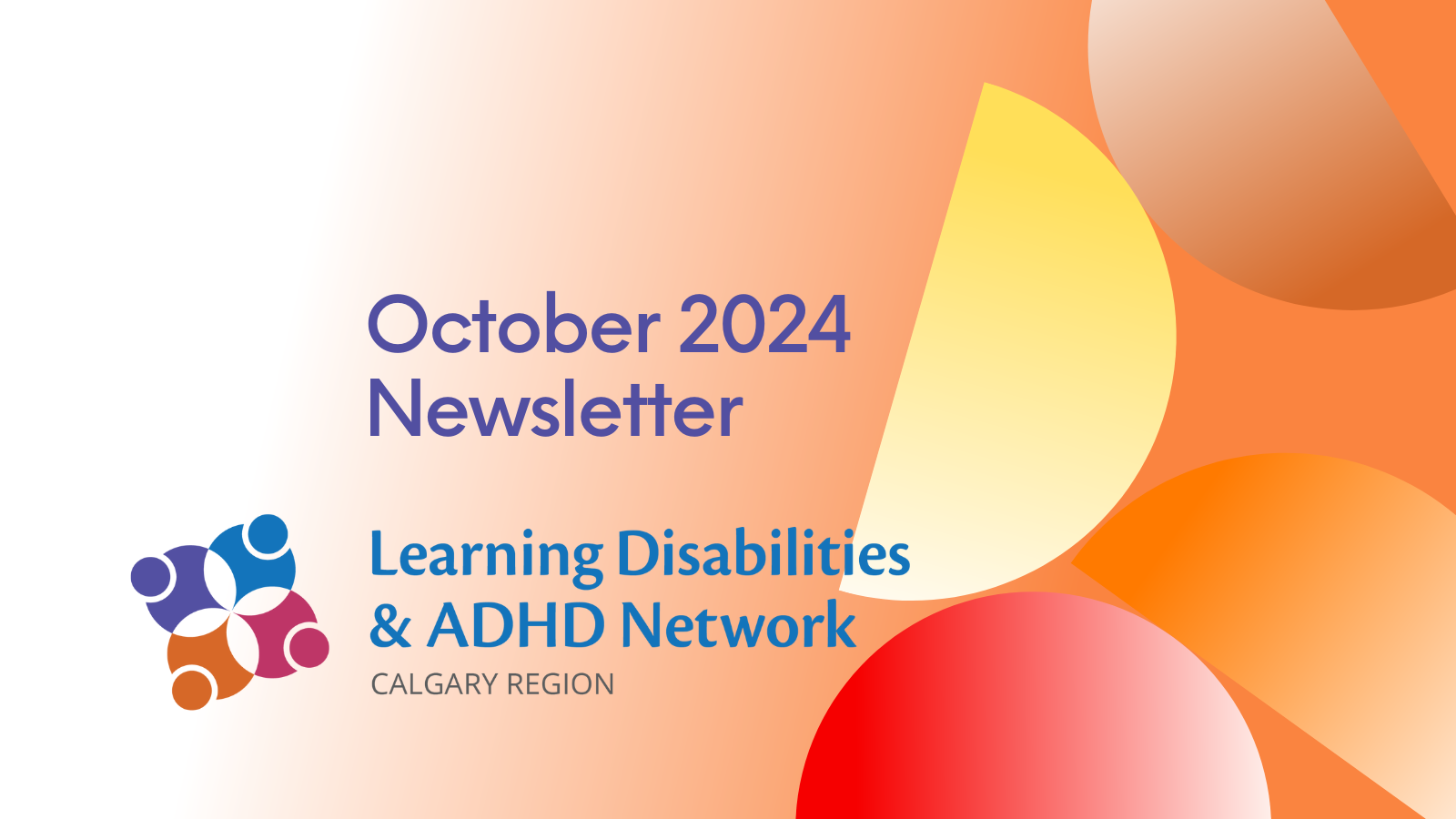
October 2024 Newsletter
Latest Conference News | Families & Adults | Educators & Employers | And More!
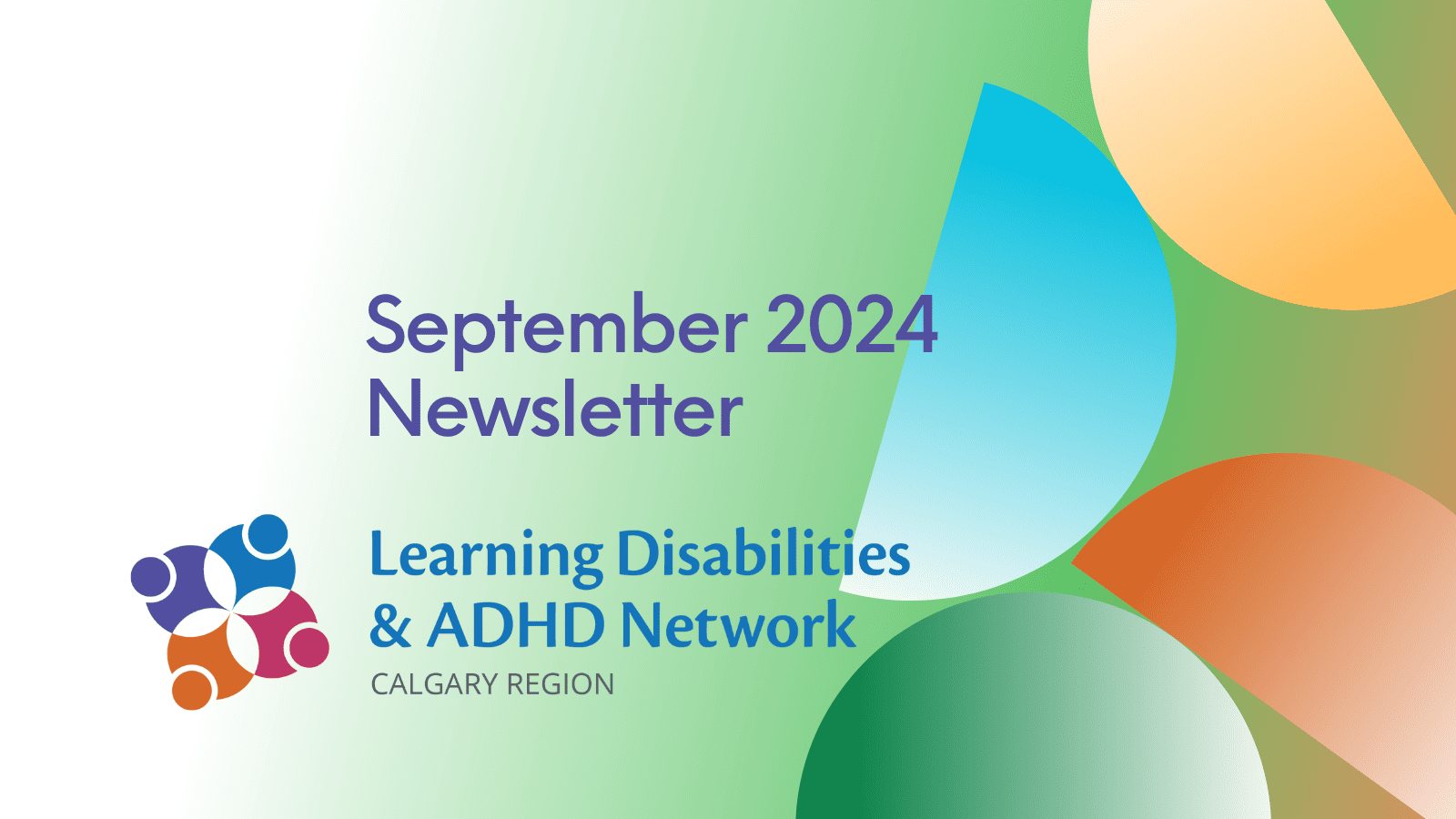
September 2024 Newsletter
Latest News | Families & Adults | Educators & Employers | And More!
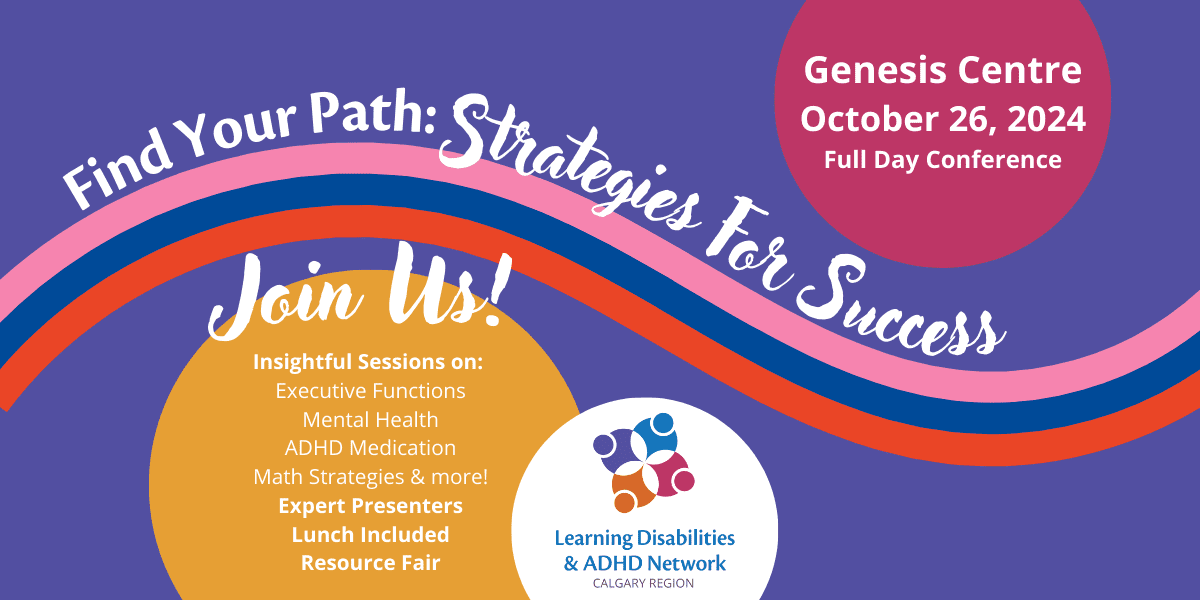
Find Your Path: Strategies for Success Conference Oct. 26, 2024
Oct. 26, 2024 Strategies for Success Conference in Calgary!
Join us at an Upcoming Event
Featured Event
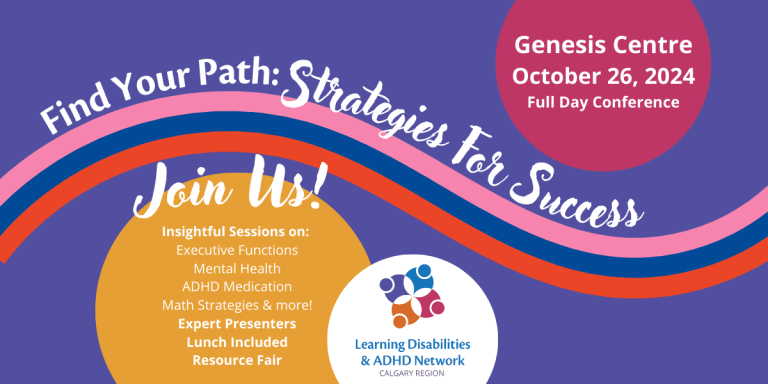
Find Your Path: Strategies for Success Conference
Date of Event: October 26th, 2024
October is Learning Disabilities and ADHD Awareness Month! Boost your understanding and personal support toolkit at our one-day conference on October 26, 2024.
Find Your Path: Strategies for Success is all about practical take-aways for those with Learning Disabilities or ADHD on executive functioning, mental health, ADHD medication, math strategies, advocacy, relationships and more!
If you are a parent, educate children or are an adult looking to strengthen your skill set, this conference is for you.
EXPERT: Bani Puri Spend 30 minutes with Bani Puri, Program Manager at Foothills Academy Society to discuss ADHD myths, its impact on academics and strategies to build success at school. […]
Calgary, Alberta 7555 Falconridge Blvd NE #10, CT3J 0C9
A full-day Calgary conference focused on the needs, supports and resources for those with Learning Disabilities and/or ADHD. Strategies for Success isn't just the title of our conference, it's also […]
EXPERT: Scott Spradlin, LPC Dialectical Behavior Therapy (DBT) is an effective treatment for improving emotional regulation in adults with ADHD. DBT aims to improve emotional dysregulation through four basic skills modules: core […]
Recent Informational Articles
Learn more about LDs and ADHD, and find helpful information and insights on the assessment, diagnosis and management of these learning and attention challenges.
October is Learning Disabilities and ADHD Awareness Month! Boost your understanding and personal support toolkit at our one-day conference on October 26, 2024.
Find Your Path: Strategies for Success is all about practical take-aways for those with Learning Disabilities or ADHD on executive functioning, mental health, ADHD medication, math strategies, advocacy, relationships and more!
If you are a parent, educate children or are an adult looking to strengthen your skill set, this conference is for you.
Choose which ticket platform you would like to buy tickets on:
Conference Details
- Saturday, October 26, 2024, 8 am – 5 pm
- Tickets available for purchase until Oct. 21
- Sessions are 75 minutes with 15 minute breaks
- Resource Fair from 8 am – 5 pm
- Nutritious Lunch Included (individually boxed and labeled; V, Veg, GF, Halal available)
- Venue: The Genesis Centre, 7555 Falconridge Blvd NE, Calgary
- Free Parking
- In-person event; sessions are not recorded so see you there!
- Conference Schedule and Conference Topics & Presenters
Tickets are only CDN$30 and include Showpass or EventBrite fees. They are available for purchase until Oct. 21.
Note: This conference has been heavily subsidized to be as financially accessible as possible. However, if you would have been able to pay more, please consider adding a donation when purchasing your ticket. Thank you!
Ticket prices, except for Showpass fees or EventBrite fees, are refundable only up to and including October 15, 2024. No refunds will be issued after this date. Contact findhelp@ldadhdnetwork.ca for refunds.
Best Way to Register
- Explore the session topics below.
- Choose one from each time slot.
- Click on Register Today on Showpass or Register Today on EventBrite which will take you to buy your ticket and where you will be prompted to register for the sessions before check out.
Conference Topics
9:00 am – 10:15 am, presentations 1A or 1B.
1A: Strategies to Work With Your Brain
Angie Jones, Tracie Czerkawski & Dani Taylor
This session is designed specifically for adults to provide strategies and tools to enhance executive functioning skills. Understanding and improving these skills can lead to better management of daily tasks, increased productivity, and improved quality of life. The session will focus on practical techniques tailored to address common challenges faced by adults experiencing challenges with executive functioning.
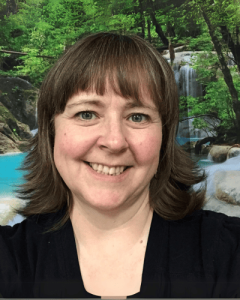 Angie Jones holds a Master of Education in Community Rehabilitation and Disability Studies and has been working with people with disabilities, across the lifespan, for over 25 years. She has been involved in post-secondary education for approximately 7 years as an instructor and Accessibility Advisor and is currently the Student Support Coordinator in the Lamb Learner Success Centre at SAIT and oversees Accessibility Services and Testing Services. Angie’s personal experience with neurodiversity has driven her passion to support students at SAIT and she is currently a co-chair for the SAIT Neurodiversity Alliance.
Angie Jones holds a Master of Education in Community Rehabilitation and Disability Studies and has been working with people with disabilities, across the lifespan, for over 25 years. She has been involved in post-secondary education for approximately 7 years as an instructor and Accessibility Advisor and is currently the Student Support Coordinator in the Lamb Learner Success Centre at SAIT and oversees Accessibility Services and Testing Services. Angie’s personal experience with neurodiversity has driven her passion to support students at SAIT and she is currently a co-chair for the SAIT Neurodiversity Alliance.
 Tracie Czerkawski is an Academic Strategist at Mount Royal University. She has a BA in Women and Gender Studies, focusing on critical disability studies, from the University of Manitoba, and has completed coursework towards an MA in Educational Research from the University of Calgary. Tracie is diagnosed with ADHD and brings her lived experience to her work supporting students.
Tracie Czerkawski is an Academic Strategist at Mount Royal University. She has a BA in Women and Gender Studies, focusing on critical disability studies, from the University of Manitoba, and has completed coursework towards an MA in Educational Research from the University of Calgary. Tracie is diagnosed with ADHD and brings her lived experience to her work supporting students.
Dani Taylor holds a degree in Psychology and a degree in Education. She was a teacher with the Calgary Board of Education for 7 years before pursuing her dream of working with students with disabilities. She has been an accessibility advisor at SAIT for the past year and co-chairs the Neurodiversity Alliance. Dani is moving into a new role this fall as SAIT’s first Neurodiversity Specialist.
1B: What are EF Skills and How Can We Support Them in children?
Lauren Thompson
Executive functioning skills are life skills that help people manage time, organize themselves and their belongings and navigate social interactions. Often, these skills are impacted in students with learning disabilities and ADHD. These students can be labeled as “bad” because of their inability to self-regulate and plan and organize. This session will present information on what EF skills are and how they look in real life, as well as practical skills and strategies to help teachers and parents support the children in their lives to have success in school and at home.
 Lauren Thompson is a Calgary-born educator at Rundle Academy, a school specializing in students with learning disabilities from Grade 4-12. She has been an educator for 12 years, and recently obtained her Masters in Educational Neuroscience and Learning Disabilities from the University of Calgary. She currently teaches Grade 6, and is the Head of Literacy at her school. She is passionate about supporting the needs of diverse students and dedicated to empowering them in helping them reach their full potential.
Lauren Thompson is a Calgary-born educator at Rundle Academy, a school specializing in students with learning disabilities from Grade 4-12. She has been an educator for 12 years, and recently obtained her Masters in Educational Neuroscience and Learning Disabilities from the University of Calgary. She currently teaches Grade 6, and is the Head of Literacy at her school. She is passionate about supporting the needs of diverse students and dedicated to empowering them in helping them reach their full potential.
10:30 am – 11:45 am, presentations 2A or 2B.
2A: Navigating Relationships as an Adult with ADHD/Learning Disorders
Dr. Heather Baker, R.Psych., Director of Clinical Services at CanLearn Society
Each day we are faced with navigating the nuances of different relationships. Our experiences as children can impact the way that we interact with others in our lives as adults. Adults with ADHD and/or Learning Disorders may experience unique strengths and challenges when it comes to building and maintaining relationships. This presentation explores these unique aspects of relationship navigation with a specific focus on self-advocacy, emotion regulation, and diagnosis disclosure. Presented strategies aim to help adults with ADHD and/or Learning Disorders feel more confident in their role as a partner, friend, and co-worker.
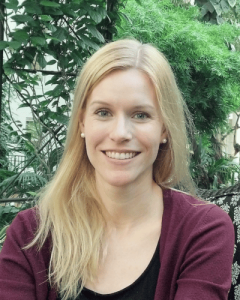 Dr. Heather Baker is a Registered Psychologist and Adjunct Clinical Associate Professor through Werklund School of Education at the University of Calgary. She holds a doctorate in School Psychology and a master’s in Clinical Psychology (both through the University of British Columbia). Dr. Baker specializes in assessment and program planning for individuals with anxiety, learning, attention, and behavioural challenges across the lifespan. She enjoys providing supervision to practicum and internship students and participating in research partnerships in the community.
Dr. Heather Baker is a Registered Psychologist and Adjunct Clinical Associate Professor through Werklund School of Education at the University of Calgary. She holds a doctorate in School Psychology and a master’s in Clinical Psychology (both through the University of British Columbia). Dr. Baker specializes in assessment and program planning for individuals with anxiety, learning, attention, and behavioural challenges across the lifespan. She enjoys providing supervision to practicum and internship students and participating in research partnerships in the community.
2B: Parent Advocacy as Part of the School Learning Team
Terra Xavier, BA, BEd, MEd
Navigating the IPP process in being an active member of the school learning team can be a daunting undertaking for parents. This session will prepare parents for collaborating with the school to ensure that their child’s needs according to their ADHD and/or Learning Disability diagnosis are being fully addressed and supported. This will include IPP essentials, resources, and look-fors that would assist in promoting productive and reciprocal relationship between home and school with the child at the centre for both.
 Terra Xavier has been teaching with the Calgary Board of Education for nearly two decades (K-9) and has taught in various educational environments including community schools, specialized classes, and unique settings. She has taken on various leadership roles to support student reading development as classroom teacher, learning leader, and system Inclusive Education Specialist. Terra has a wealth of experience, knowledge, and passion around research-based literacy instruction and finds joy in supporting teachers and school leaders with transforming their practice.
Terra Xavier has been teaching with the Calgary Board of Education for nearly two decades (K-9) and has taught in various educational environments including community schools, specialized classes, and unique settings. She has taken on various leadership roles to support student reading development as classroom teacher, learning leader, and system Inclusive Education Specialist. Terra has a wealth of experience, knowledge, and passion around research-based literacy instruction and finds joy in supporting teachers and school leaders with transforming their practice.
12:30 pm- 1:45 pm, presentations 3A or 3B.
3A: Designing to the Edges of Your Math Classroom
Sheryl Walters & Liz Thompson
Instructional design is a powerful tool for crafting lessons that are both accessible and captivating in mathematics classrooms. By applying intentional, universal design principles, educators can integrate high-impact strategies and activities that offer a broad range of entry points and opportunities for advanced exploration. In this session, we’ll explore the significance of purposeful instructional design in mathematics and the impact that accessible tasks can have on student engagement and comprehension. Participants will gain valuable insights into designing for diverse learning needs and will leave equipped with practical resources and strategies to immediately enhance their lessons.
 Sheryl Walters is an Assistant Principal at Calgary Academy and a Doctoral Student at the University of Calgary. With 13 years of experience in education, she has excelled as an instructional designer and administrator within special education. Sheryl’s expertise lies in mathematics instruction and inclusive design, and she is dedicated to coaching educators and engaging learners through innovative numeracy strategies and effective discourse.
Sheryl Walters is an Assistant Principal at Calgary Academy and a Doctoral Student at the University of Calgary. With 13 years of experience in education, she has excelled as an instructional designer and administrator within special education. Sheryl’s expertise lies in mathematics instruction and inclusive design, and she is dedicated to coaching educators and engaging learners through innovative numeracy strategies and effective discourse.
 Liz Thompson is an Assistant Principal and former Foundational Numeracy Lead at Calgary Academy, where she has spent the past twelve years working with exceptional learners. Her expertise is in building teacher capacity to integrate foundational numeracy skills and address the diverse needs of math learners. Liz is also pursuing a Master of Education in Sustainability, Creativity, and Innovation from Cape Breton University, further enriching her approach to educational practice and innovation.
Liz Thompson is an Assistant Principal and former Foundational Numeracy Lead at Calgary Academy, where she has spent the past twelve years working with exceptional learners. Her expertise is in building teacher capacity to integrate foundational numeracy skills and address the diverse needs of math learners. Liz is also pursuing a Master of Education in Sustainability, Creativity, and Innovation from Cape Breton University, further enriching her approach to educational practice and innovation.
3B: Beyond the Diagnosis: Understanding the Benefits and Challenges of ADHD Medications
Dr. Sterling Sparshu
In this session, Dr. Sparshu will discuss ADHD medications including the options available and how they fit into a broader treatment plan. How to choose and trial medications will also be discussed, along with some strategies for handling side effects and keeping your progress going, plus tips on how to advocate to get the best care possible.
 Dr. Sterling Sparshu is a psychiatrist practicing in Calgary, Alberta. He has worked with children, adolescents and young adults in multiple settings including mental health clinics, residential care, and hospital-based programs. He is a Clinical Assistant Professor with the Cumming School of Medicine and enjoys teaching at all levels of medical education. He is passionate about collaboration, education and early intervention, including empowering those impacted by mental health conditions to become partners in their care.
Dr. Sterling Sparshu is a psychiatrist practicing in Calgary, Alberta. He has worked with children, adolescents and young adults in multiple settings including mental health clinics, residential care, and hospital-based programs. He is a Clinical Assistant Professor with the Cumming School of Medicine and enjoys teaching at all levels of medical education. He is passionate about collaboration, education and early intervention, including empowering those impacted by mental health conditions to become partners in their care.
2:00 pm- 3:15 pm, presentations 4A or 4B.
4A: Strategies for Supporting Mental Health in Neurodiverse Students
Dr. Gabrielle Wilcox
In this talk I define mental health including what we know about how students are doing broadly and how students with learning disabilities and ADHD are doing in the area of mental health. I will spend a great deal of time focusing on what we can do to support mental health especially positively and preventatively. Finally, I will cover extra supports for students with learning disabilities and ADHD might need to support their mental health.
 In January 2013, Dr. Wilcox moved to Alberta from Pennsylvania, where she spent most of her life. She is married with two teenaged sons. She earned a BSE in English Education and an MS in School Psychology at Millersville University. She practiced as a school psychologist for eight years, primarily serving students with intellectual disabilities or severe emotional/ behavioral problems, before completing her PsyD in School Psychology at Philadelphia College of Osteopathic Medicine (PCOM) in 2009. She completed post-doctoral training in clinical neuropsychology and practiced as a licensed psychologist in Pennsylvania, primarily working in pediatric neuropsychology, until joining the Werklund School of Education at the University of Calgary. Dr. Wilcox is a Registered Psychologist in Alberta and a Nationally Certified School Psychologist.
In January 2013, Dr. Wilcox moved to Alberta from Pennsylvania, where she spent most of her life. She is married with two teenaged sons. She earned a BSE in English Education and an MS in School Psychology at Millersville University. She practiced as a school psychologist for eight years, primarily serving students with intellectual disabilities or severe emotional/ behavioral problems, before completing her PsyD in School Psychology at Philadelphia College of Osteopathic Medicine (PCOM) in 2009. She completed post-doctoral training in clinical neuropsychology and practiced as a licensed psychologist in Pennsylvania, primarily working in pediatric neuropsychology, until joining the Werklund School of Education at the University of Calgary. Dr. Wilcox is a Registered Psychologist in Alberta and a Nationally Certified School Psychologist.
4B: ADHD in Girls & Women: Strategies for Success
Navdeep Vining & Uma Pepin-Robbins
This presentation highlights how ADHD often shows up differently in girls and women, leading to delayed diagnoses. We will explore how girls and women tend to mask their symptoms to fit in, which can make their struggles less noticeable. We will address how ADHD in girls is linked to unique mental health challenges such as higher rates of self-harm, eating disorders, and risky behaviours. Hormonal changes, including the menstrual cycle, can also impact symptoms and medication effectiveness. We will also discuss ways to better support girls and women with ADHD, from early identification to addressing their specific needs.

Navdeep Vining is a Registered Provisional Psychologist who completed her Bachelor’s in Psychology from the University of Calgary and Masters of Counselling Psychology from Yorkville University. She has been a part of the Counselling Psychology team at Foothills Academy under the supervision of Dr. Karen MacMillan. Navdeep has worked with children and their families from ages 3-18 for the past 7 years with various disabilities inearly intervention, respite, residential programs and summer programs. She has extensive experience with a diverse age range and diverse mental health concerns and challenges. Navdeep was born and raised in Calgary, especially in northeast Calgary, and feels passionate about giving back to her own community. She looks forward to being involved in creating accessible mental health and disabilities education and services within the growing South East Asian community in Calgary in the future.

Uma Pepin-Robbins, is a Registered Provisional Psychologist and works with youth with Learning Disabilities and ADHD at Foothills Academy and has a passion for helping youth navigate the complexities of their emotional and mental well-being. Uma also co-facilitated a process group for young girls and adolescents with ADHD to help understanding of their diagnosis(es), while also helping them to gain greater awareness of their individual strengths.
“Having LD should never define who they are.”
School can be very challenging for a child with a Learning Disability so, come summer, look for opportunities that allow your child to explore and shine in other areas.
New Activities
Take advantage of those warm, sunny days to spend time outdoors. Does your child love to play basketball or ride a bike? Now is the time to develop those skills, either through formal programs or simply as a family or with friends. This is a perfect time to introduce new activities that haven’t been tried yet… such as learning to swim, kayaking or golf. It’s so important that kids with LD have the opportunity to discover the strengths that they have.
This is also a perfect time to take advantage of the pathways and trails that exist in many neighbourhoods as well as exploring interesting nearby communities. Lots of information can be found online that provide families with suggested walking or biking routes and other excursions. With high gas prices this summer, finding a favourite new nearby park or ice cream shop is a cost conscious way to enjoy a day outdoors. Letting your child plan the trip or create a map for the outing builds important skills as well as confidence.
Also, watch for local festivals and special events at galleries, libraries, community centres, etc. to further expand your children’s opportunities to develop new interests and skills. Not everything activity has to cost money.
Getting out and about is also a good way to combat some of the emotional stress that your child may have been experiencing this past school year. School can be very stressful, especially for our children with special needs, and time spent reconnecting to nature is so important.
Reconnect
So is reconnecting with family and friends. Friendships can often be particularly challenging for children with LD, and COVID created further barriers to those social interactions. Though we are thankfully past the pandemic, it caused delays in social skills development that continue to be an issue for many children. Look for opportunities to connect with understanding family and friends that can consciously foster conversational skills, turn-taking in games, or sharing their own interests and can engage a socially immature child or youth with patience and humour. Also consider speciality summer camps for students with LD where camp counsellors are trained in understanding LD and incorporate social skills learning through fun summer activities.
More Ideas
Do you have a future scientist or astronomer in your family? The back yard is a great spot for some of those messy science experiments that kids love so much. The library or online sites can provide lots of ideas for experiments. And, star gazing at night may inspire a curiosity about the wider universe.
Outdoors is also the perfect venue for a variety of craft projects. Dollar stores and local craft stores have lots of reasonably priced materials for a budding sculptor, wood or paper project builder or Picasso. Water based paints are a safer choice than acrylics or oils, making for easy clean up after a project is done. Kids can simply experiment with the materials or follow along on youtube demos. And, crafting “plein air” means that the paints and other materials dry quickly.
What about starting a garden? Even those in condos can grow pots of plants or vegetables. There are a variety of seeds available at many local stores or you can stop by a garden centre that is now clearing out this year’s stock. We always look for brightly coloured flowers or plants such as strawberries or tomatoes that offer a quick, and often repeated, harvest.
Growing vegetables or fruits can also lead to learning to cook or bake, both important…and fun!… life skills. Following recipe instructions reinforces reading and math measurement skills without it seeming to be work. Best of all, there is the reward of something delicious to enjoy at the end.
Reading, too
And, in our family, reading skills are not ignored over the summer. Even though reading may be a real challenge for your child with LD, it is a skill that needs to be maintained…even while on vacation. During this time away from school where there was often a more structured reading program or book selection, focus on what your child would like to read. Re-reading an old familiar book that they enjoyed or sharing potential new favourites as a family read-aloud activity can bring new enjoyment to the reading process.
Summer definitely is not a time to simply survive before school resumes. Instead, you can make it a time to try a whole host of interesting activities while creating new family memories and, in the process, a lot of added confidence in your child with LD.
About the Author:
Lorrie Goegan, B.A., B. Ed, Cert Sp. Ed., is a longtime parent mentor and a past speaker at numerous provincial and national LD conferences. She is also the parent of an adult daughter with LD.
Self-Advocacy When You are a Newcomer
Canada has a long history of immigration. Millions of people worldwide have chosen, and continue to choose, Canada as their new home. In 2021, more than 8.3 million people, or almost one-quarter (23.0%) of the population, were, or had ever been, a landed immigrant or permanent resident in Canada, according to Statistics Canada.
Moving to a new country is a challenging step in one’s life, regardless of your background or reasons for the move. Leaving behind everything familiar and adjusting to a new place, people, and society can be daunting. However, you are not alone in this journey. Your resilience and determination will guide you through these challenges.
In the Beginning
In the early stages of settlement, we focus on fulfilling our primary needs and navigating a new system to find a job or education, depending on the case. Families with children must also learn about the local education system, how to enrol their children and the range and limits of teacher responsibilities.
If your child has been diagnosed with a learning disability before coming to Canada, rest assured that support is available for you and your family. However, you must be proactive in sharing the diagnosis and participating in the support process, as resources are not always centralized. Nonetheless, numerous resources are available to support you and your child, and we are here to guide you in accessing them.
Landed immigrants with higher levels of education and language skills generally do not face significant challenges in supporting themselves and their family members in their journey of self-advocating for learning disabilities. However, numerous barriers impact other newcomer families when navigating the system to find services and resources related to learning disabilities.
What is a Learning Disability?
“Learning Disabilities refer to a number of disorders that may affect the acquisition, organization, retention, understanding, or use of verbal or nonverbal information. These disorders affect learning in individuals who otherwise demonstrate at least average abilities essential for thinking and reasoning. Learning disabilities are distinct from global intellectual deficiency” (Learning Disabilities Association of Canada). This means that a child is able to learn quite well – they are not ‘disabled’ from learning – though their brains process information differently enough that they often encounter difficulties in school settings.
Alberta Family Resource Networks
A good starting point for newcomer parents of young children living in Alberta is to connect with the Family Resource Networks (FRN), which deliver prevention and early intervention services and support for children and youth aged 0 to 18 and their families. Services are offered in-person and virtually to communities across Alberta. In addition to onsite programs, home visitation programs support literacy and the healthy development of young children, and they can come to you at your place. These programs usually have screening tools such as ASQ: The Ages & Stages Questionnaire, a developmental screening tool that pinpoints developmental progress in children between one month and 5 ½ years. Depending on the provider, first language support is also available through program staff or qualified interpreters.
Community Health Centers
If family programs are not an option for you, connecting to the Community Health Centre in your area is essential. As a parent, you know best about your child, so don’t hesitate to share any concerns and ask as many questions as you need. Interpretation is readily available through Alberta Health Services.
Once health staff have assessed the need for a screening, you will be referred to the appropriate health care provider. Be aware of the wait times, which can take several months. Please be patient but remember that you might need to seek help from various sources in this process. You are the advocate for your child, and even though you will find many people to support your journey, you are the one in charge. Your advocacy is crucial in ensuring your child’s needs are met, and we believe in your courage and ability. You lead, we follow.
Settlement Agencies
As a newcomer, you can access support through settlement agencies, where counselors can assist in completing documents and forms, and can also refer you to community programs, including family counseling.
We Can’t Wait for an Assessment!
There are instances when family doctors prefer to wait to refer for further assessments. Early intervention is crucial, and you don’t have to wait until your child starts school. You can ask for a second opinion from another doctor, seek advice from a community resource agency or see a private psychologist. Psychology fees can be claimed through workplace benefits plans and your income tax.
Depending on the final diagnosis, you might need to see different kinds of specialists, such as behavioral therapists, speech therapists, learning strategists, psychologists, and so on. You can also access support from a social worker depending on your family’s needs.
My Child Doesn’t Need a Label
It’s important to note that awareness and perception of learning disabilities vary between societies and are sometimes not widely acknowledged. Due to cultural pressure, some people may choose isolation and denial, and consciously avoid seeking services or diagnosis because they fear their children will be labeled. It’s crucial to remember that if your child has a learning disability, it simply means that their learning process is different, and they need support for learning. In fact, without a diagnosis, they will not be eligible to receive supports at school. Your child with a learning disability is capable and can be as successful as they want to be but they will need your support and advocacy.
If your child is a preschooler and has been diagnosed, their learning needs can be addressed through special programming at a preschool center. School-aged children can access intervention, accommodations and special programming through the school boards. It’s important to work closely with the educational institution to support your child’s educational journey. Your involvement is key to their success. Your advocacy is crucial to achieving their life goals.
About the Author
Luz Buritica is the Coordinator of Home Instruction for Parents of Preschool Youngsters (HIPPY) at the Calgary Immigrant Women’s Association (CIWA). Originally an engineer in Colombia, she joined the HIPPY program as a Mom a year after arriving in Canada. The program had a positive impact on her life, helping her daughter develop cognitive skills through simple and enjoyable activities. After two years as a HIPPY mother, Luz became a Home Visitor, supporting and empowering other families. Her experience led her to become a team leader and take on the coordinator position in 2015.
CIWA supports immigrant and refugee women, girls and their families. They offer more than 50 programs that can support individuals with settlement needs, language and employment training, family matters, seniors’ services, career and entrepreneurship, and mental health.
About The Learning Disability
& ADHD Network
The Learning Disabilities and ADHD Network is a collaborative of a broad group of organizations and individuals in Calgary, which is operated through Foothills Academy Society.
Members of this long-standing Network regularly present at conferences, provide workshops and courses, undertake research projects in the field, collaborate with each other on various initiatives, and jointly create content for the website. Most importantly,
we are people whose lives have been touched by Learning Disabilities & ADHD, and whose life’s work it has been to support individuals with learning and attention challenges.
Disclaimer: The Learning Disabilities & ADHD Network does not support, endorse or recommend any specific method, treatment, product, remedial centre, program, or service provider for people with Learning Disabilities or ADHD. It does, however, endeavour to provide impartial and, to the best of our knowledge, factual information for persons with Learning Disabilities and/or ADHD.




